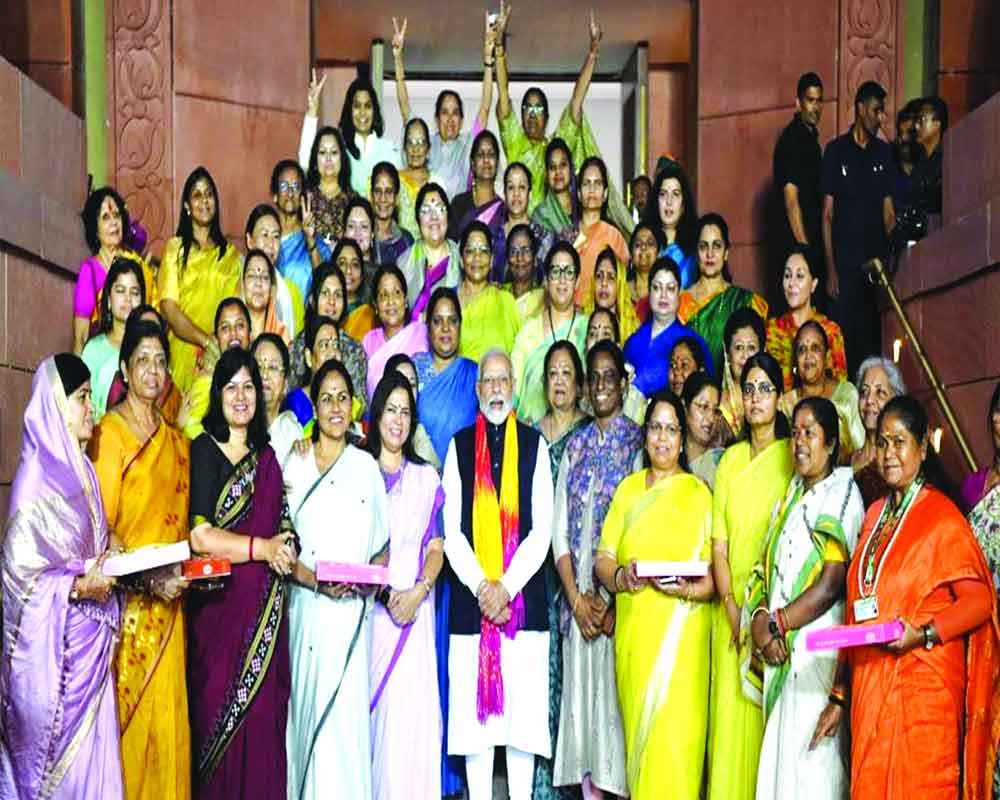Indian women are busy carving out a place for themselves at the political high table
A significant transformation is underway — one that marks the increasing prominence of Indian women in politics, a domain largely dominated by males. Over the years, Indian politics has evolved and women have emerged as influential stakeholders, challenging tradition and reshaping the nation’s political narrative. The growing women’s participation is not only a testament to their perseverance but it also reflects a broader societal shift towards inclusivity. The Indian political arena has long been characterised by patriarchal structures and gender disparity, with women often being marginalised or relegated to the periphery. However, the tide is turning in a big way, and women are now asserting their presence with greater vigour. Across political parties, there is a concerted effort to woo women voters, recognising their significance as a crucial demographic. One of the primary catalysts for the increasing importance of women is the implementation of gender quotas and reservations in local governance bodies. The landmark 73rd and 74th Amendments to the Constitution in 1993 mandated one-third of seats in local bodies to be reserved for women. Building upon that success, there was a clamour for similar quotas in State Assemblies and Parliament, which finally was given shape to by the Narendra Modi Government.
The existence of the women’s reservation Bill has galvanised political parties to maximise women’s representation. The reservation of seats for women in Parliament holds the promise of transforming political India. Ensuring a more equitable distribution of seats, it addresses the underrepresentation of women in decision-making bodies. It sends a powerful message about the value of women’s voice in shaping the nation’s future and underscores their rightful place in governance. Beyond legislative measures, parties across the ideological spectrum are actively courting women voters by addressing issues that resonate with them, such as healthcare, education, safety and economic empowerment. Indeed, women today are no longer content being passive bystanders in the political process; they are demanding a seat at the high table. Their participation brings a fresh perspective to governance, prioritising issues that have long been neglected and advocating for policies that promote gender equality and social justice. However, challenges remain in achieving gender parity in Indian politics: Deep-rooted patriarchal attitudes, entrenched gender stereotypes and systemic barriers continue to hinder women’s participation and representation. Moreover, women in politics often face harassment, intimidation and discrimination. Addressing these issues requires concerted efforts from policymakers, political parties, civil society and general public to create an enabling environment for women leaders. By embracing the principles of gender equality, India can truly fulfil its democratic aspirations and emerge as a beacon of inclusive governance for the world to emulate.
























